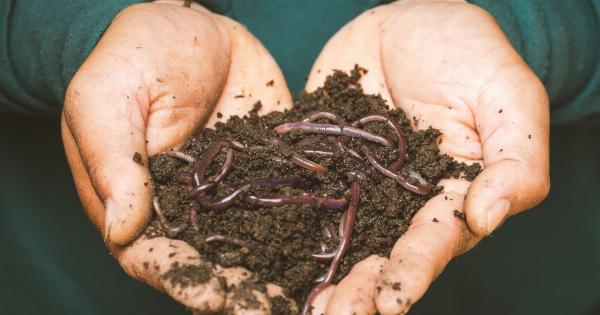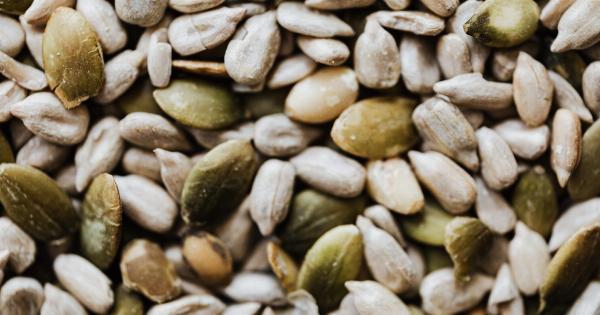Many of us have experienced dandruff at some point in our lives. It can be an annoying and embarrassing condition characterized by an itchy scalp and flaky skin.
While several factors contribute to dandruff, including excessive oil production, yeast overgrowth, and certain skin conditions, recent studies suggest that stress may also play a role in the development and exacerbation of dandruff.
Understanding Dandruff
Dandruff is a common scalp disorder that affects millions of people worldwide. It occurs when the scalp’s natural shedding process accelerates, resulting in the accumulation of dead skin cells on the scalp and falling as visible flakes.
It is typically accompanied by itchiness, redness, and irritation.
The Link between Stress and Dandruff
A growing body of evidence indicates that stress can contribute to the occurrence and worsening of dandruff. Stress triggers various physiological and hormonal changes within the body, which can negatively impact the scalp and its overall health.
1. Increased Sebum Production
Under stress, the body releases cortisol, often referred to as the stress hormone. Elevated cortisol levels can cause the sebaceous glands in the scalp to produce excess sebum, an oily substance that moisturizes the hair and skin.
When sebum production goes into overdrive, it creates an ideal environment for Malassezia, a yeast-like fungus found naturally on the scalp. The overgrowth of this fungus is commonly associated with dandruff.
2. Weakened Immune Response
Prolonged stress weakens the immune system, making the body more susceptible to various infections and inflammations, including those affecting the scalp.
When the immune response is compromised, the scalp’s natural defense mechanisms against Malassezia and other microorganisms may be impaired, leading to an increased risk of dandruff.
3. Impact on Skin Barrier Function
Stress can disrupt the skin’s natural barrier function. The outermost layer of the skin, called the stratum corneum, plays a crucial role in preventing moisture loss and protecting against microbial invasion.
However, chronic stress can compromise this barrier, causing dryness, flakiness, and vulnerability to external irritants. The weakened skin barrier can contribute to the development of dandruff and exacerbate its symptoms.
4. Altered Microbiome
Emotional stress has been shown to impact the gut microbiome, which plays a significant role in overall health. The same may apply to the scalp microbiome.
Recent studies suggest that alterations in the scalp’s microbial composition could contribute to the development of dandruff. Stress-induced changes in the microbiome may disrupt the delicate balance of microorganisms on the scalp, leading to increased flaking and inflammation.
5. Increased Scratching and Itching
Stress often triggers behaviors such as scratching, rubbing, or pulling at the hair and scalp. These activities can damage the scalp’s protective barrier, creating small wounds and inflammation.
Scratching can also exacerbate existing dandruff, making it more visible and causing further irritation.
Management and Prevention
While it’s challenging to completely eradicate stress from our lives, there are several steps you can take to manage and minimize its impact on dandruff:.
1. Practice Stress Reduction Techniques
Engaging in activities that help reduce stress can be beneficial for overall well-being and may indirectly contribute to improving dandruff symptoms.
Try incorporating stress reduction techniques such as deep breathing exercises, meditation, yoga, or engaging in hobbies that bring joy and relaxation.
2. Maintain a Healthy Lifestyle
A healthy lifestyle can help support a balanced scalp and reduce the likelihood of dandruff flare-ups. Ensure you get enough sleep, eat a balanced diet rich in essential nutrients, and exercise regularly.
These lifestyle factors contribute to overall stress reduction and promote a healthy scalp environment.
3. Use Gentle and Moisturizing Hair Products
When selecting hair products, opt for those specifically formulated for dandruff-prone scalps. Look for gentle, sulfate-free shampoos that contain moisturizing ingredients like aloe vera, coconut oil, or tea tree oil.
Avoid harsh chemicals and excessive heat styling, as they can further aggravate the scalp and contribute to dandruff development.
4. Seek Medical Advice
If your dandruff persists or worsens despite attempting self-care measures, it may be beneficial to consult a dermatologist or trichologist.
They can evaluate your scalp’s condition, identify any underlying causes, and recommend appropriate treatment options, which may include medicated shampoos, topical antifungal agents, or prescription medications.
The Bottom Line
While stress is not the sole cause of dandruff, it can certainly play a role in its development and exacerbation. By managing stress levels and prioritizing scalp health, it is possible to mitigate the impact of stress on dandruff.
Incorporate stress reduction techniques, maintain a healthy lifestyle, and seek professional advice when necessary to keep your scalp healthy and free from flaking.






























